The AI parenting trap occurs when digital tools systematically replace parental intuition, leading to increased anxiety and weakened parent-child bonds that research shows are critical for healthy development.
Nobody wants to admit the AI parenting trap. Those seemingly helpful apps on your phone can gradually hijack your natural parenting instincts.
You downloaded that crying decoder app at 3 AM. You track every feeding schedule. You measure sleep cycles down to the minute.
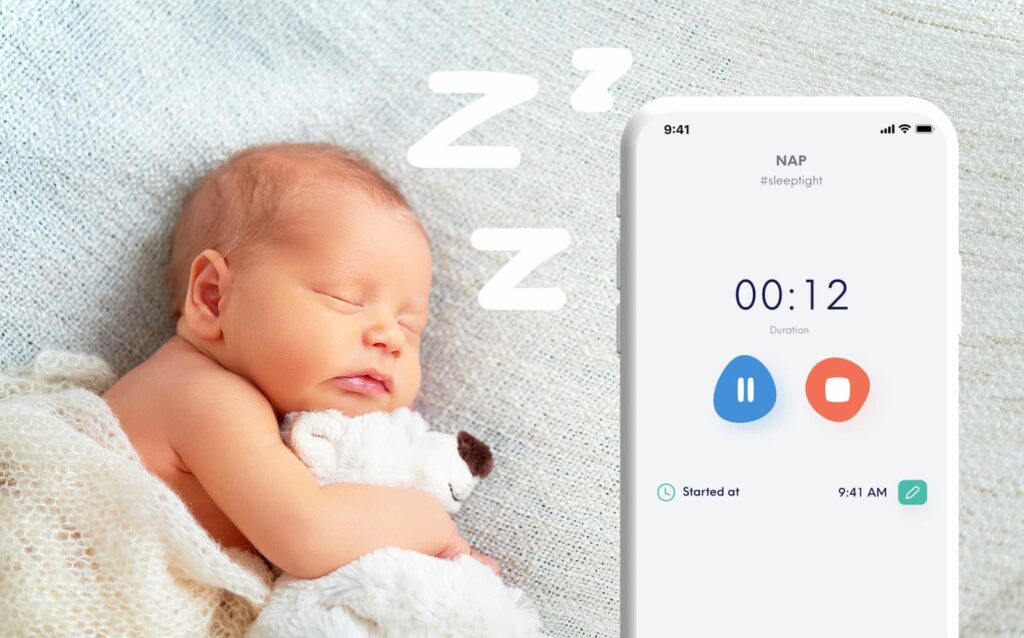
Well, some AI tools actually help.
Apps that track medication schedules for children with chronic conditions or monitor progress for kids with developmental delays can provide real, practical support.
As a parent, here’s what worries me and experts I’ve spoken to feel the same way.
When these tools become your primary decision-makers instead of supportive sidekicks, they can replace the intuitive responses that build secure attachment with your child.
When Digital Tools Override Natural Instincts
AI isn’t the villain. It’s how we use it that gets messy.
Health-tracking apps for children with chronic conditions can be genuinely helpful. Tools that assist in spotting developmental delays can support early care when combined with a parent’s own understanding.
The trap isn’t the technology. It’s when we start believing algorithms know our kids better than we do.
Silicon Valley sold us the dream that AI would make parenting easier and more efficient. The problem hits when optimization starts overriding your gut instincts.
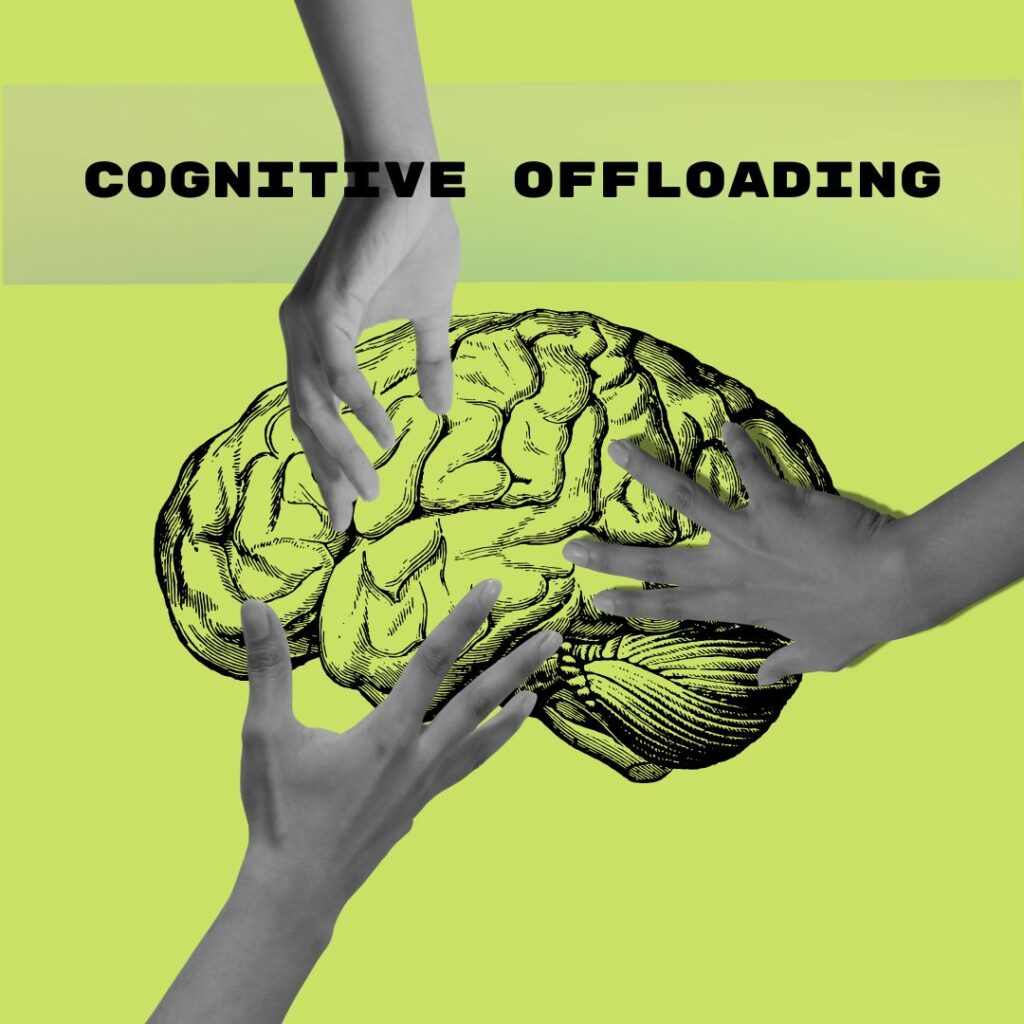
The AI parenting trap in action: When children consistently rely on AI for learning and problem-solving, their brains engage in cognitive offloading, bypassing the mental work required for deep thinking.
The result: Kids who know what AI said but don’t understand why it matters.
The bigger trap: We’re optimizing for metrics instead of nurturing the intuitive relationships that actually matter.
Why AI Tools Can Mess With Your Parenting Confidence
Dr. Ellen Galinsky figured out something important. Parental confidence beats parental knowledge every time when it comes to raising healthy kids.
The trouble starts when AI apps become your go-to advisors instead of backup resources.

Here’s how the trap develops:
- You check an app instead of trusting what you see.
- You second-guess your natural responses to your child.
- You develop what experts call algorithmic dependency, relying on AI advice even when your kid is telling you something different.
- Your natural confidence starts to wobble.
Parents often turn to AI tools hoping to feel more in control. But it can backfire.
Dr. Pierce and Dr. Jacobson, in an interview with Parents.com, warned that relying on algorithms for everyday decisions can lead to more second-guessing, not less.
Instead of feeling supported, some parents end up doubting themselves even more.
Think about it. You used to just respond to your crying baby. Now you’re cross-referencing every whimper with an app.
I’ve been there too. (One night, I asked ChatGPT what to do about crying. It said to check for hunger. Meanwhile, I was the one crying.)
The cycle goes like this.
The more you depend on external validation for basic parenting decisions, the less you trust your own judgment.
Which makes you reach for more tech solutions.
AI Advice vs. Real Human Connection in Parenting
John Bowlby’s attachment theory reveals that children thrive through sensitive responsiveness, your ability to accurately perceive, interpret, and respond to your child’s cues.
This process is messy, intuitive, and imperfect.

When AI tools become primary decision-makers, they can work against these natural processes.
The attachment system asks one fundamental question: Is the parent nearby, responsive, and truly present?
The keyword is attentive, not to data, but to your actual child.
Crying Apps Help, until They Don’t
AI-powered crying analysis apps promise to decode whether your baby needs food, sleep, or comfort.
Pretty impressive accuracy, too.
It is helpful when new parents learning to recognize patterns during those overwhelming first weeks.
Makes total sense.
However, you start depending on the app to tell you what your baby needs instead of developing your own radar.
What happens then?
You might miss key moments that strengthen your bond with your child. Your baby cries. Instead of tuning into their cues, you check your phone first.
Over time, you’re training yourself to trust the algorithm more than your own observations of your actual child.
Secure attachment forms through thousands of micro-attunements, brief emotional exchanges between parent and infant.
Beebe’s research found that the way a parent and baby interact at just four months, how they match gaze, tone, and emotion, can predict attachment outcomes a year later.
These moments shape how the brain develops emotional regulation.
No algorithm can replicate this process.
When Tech Creates the Problems It Claims to Fix
Technoference happens when your devices interrupt those little back-and-forth moments between you and your kid.
You know? Exchanges of sounds, faces, and gestures literally build developing brains.
The irony is that more parents are starting to turn to AI tools to solve problems that digital life created in the first place.
Your phone buzzes during storytime. You check a parenting app while your toddler tries to show you something. You’re physically present but mentally elsewhere.
Kids need unpredictable, human responsiveness. The kind that happens when you’re really paying attention, not when you’re just following what an app says.
The real issue isn’t checking an app occasionally. It’s when technology becomes your main way of understanding and responding to your child’s needs.
Your kid needs you. Present, tuned in, and trusting yourself. Not an app.
AI Companions for Teens and the Risk to Emotional Development
According to a 2025 Common Sense Media survey, nearly 75% of teens have tried AI companions. About a third of those use them for emotional connection or social interaction.
These digital entities are designed to be people pleasers. They tell teens exactly what they want to hear.
Teens who lean heavily on AI companions for emotional connection may feel less prepared for real relationships, which involve disagreement, compromise, and effort.

Early studies link overuse to loneliness and emotional dependence, but this area is still being studied.
Real relationships require work. AI relationships require nothing.
When your teen’s bestie is a chatbot that never disagrees, never has a bad day, and never needs anything back, human relationships start feeling exhausting by comparison.
Why AI Can’t Replace Human Attunement in Child Development
AI parenting companies promote personalized insights as their ultimate value. The algorithm learns your child’s unique patterns and provides customized recommendations.
Real personalization in child-rearing isn’t about identifying data patterns; it’s about co-regulation.
Co-regulation is what happens when you stay calm, notice your child’s signals, and respond with steady support. Over time, that helps your child learn to handle their own emotions.
AI can spot patterns, but it can’t sit with your child’s feelings or respond in a way that feels truly seen. That part still needs you.
When you delegate these micro-decisions to AI, you miss the exact experiences that build both child resilience and parental competence.
The AI Data Problem Every Parent Should Know About
Most parents have no clue what AI tech their kids are using at school. Or how their family data gets collected and shared.
How Schools Use AI Without Parental Consent
Schools can share student data with AI vendors without asking parents. They use a FERPA rule that treats these tools like school officials.
It’s been happening for years, but now it’s getting more attention as AI use in classrooms grows fast.
Real example: LA’s school district put AI tutoring systems in front of 500,000+ students. Parents found out about the data collection when privacy groups complained.
AI is everywhere in schools now. Most are using it in some form, from tutoring apps to grading tools.
But transparency? Still missing.
Many parents have no idea which tools their kids are using or what kind of data is being collected.
And no one’s exactly volunteering that information.
Apps Are Designed to Hook You, Not Help You
Many parenting apps prioritize keeping you engaged over actually supporting your child’s development.
Developers admit it. When monetization depends on ads or screen time, engagement metrics matter more than child outcomes.
Some AI tools for kids are even trained to keep children emotionally hooked, reinforcing distress just to keep the conversation going.

That’s not accidental. That’s design.
And then there’s the data.
A 2025 study on arXiv by Chauhan and colleagues found that many parental control apps send sensitive data without encryption. Some don’t even have a working privacy policy
The business model is that your attention and your data are the product.
What Neuroscience Shows About Parent-Child Bonding
Dr. Ruth Feldman’s research in Trends in Neurosciences (2015) shows that when parents and children connect in a tuned-in way, it sets off natural brain chemicals.
These chemicals strengthen emotional bonds. Over time, they help shape the brain in both parent and child.
When you respond intuitively to your child’s needs, several things happen simultaneously:
- Your child’s stress response system learns self-regulation through co-regulation with you
- Your brain develops increased sensitivity to your child’s emotional states
- Both you and your child experience neurochemical rewards that reinforce bonding
- Your child’s developing neural pathways are optimized for social connection and emotional resilience
Critical point: I will say this again. Algorithmic recommendations can’t trigger these processes. They require real-time emotional attunement.
How AI Affects Children’s Development and Critical Thinking
Many children aged 3 to 6 believe smart speakers have thoughts, feelings, and social abilities just like humans.
A 2023 study from the University of Edinburgh found that most kids significantly overestimated the intelligence of these devices, with nearly two-thirds believing smart assistants could actually think or feel.
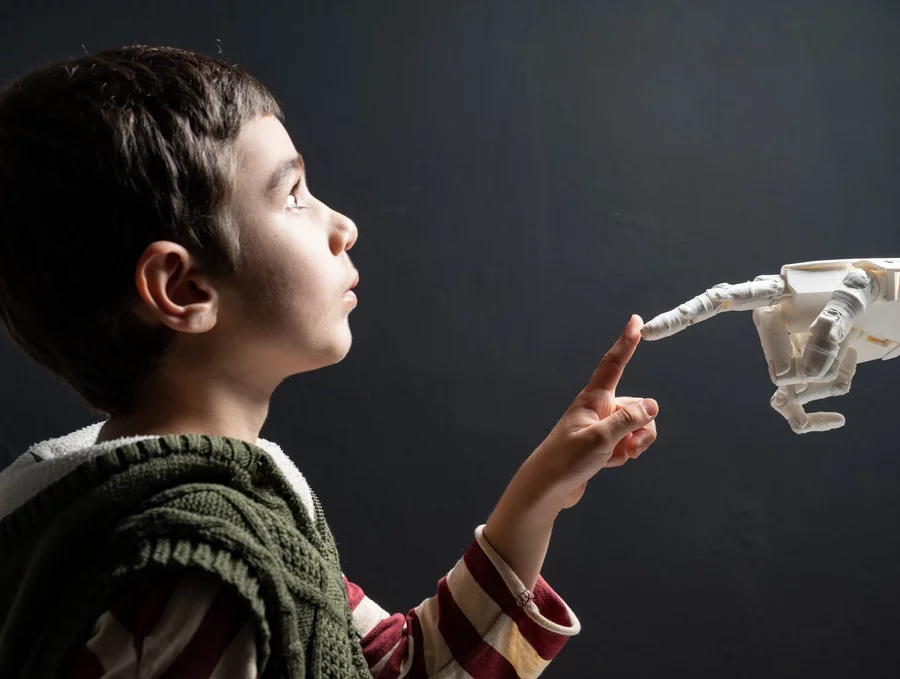
The problem: This blurs the lines between human and artificial interaction, potentially leading to inappropriate conversational habits that children bring to human relationships.
Research findings: AI systems often rely on standardized developmental models that overlook a child’s unique characteristics and can perpetuate biases present in their training data.
The paradox: AI’s personalization comes from statistical patterns in vast datasets, not a genuine understanding of individual nuances, cultural contexts, or complex family dynamics.
Why Parents Lean on AI and How to Break Free
Let’s be real, support looks different for every parent. Some have a village. Others have a login and a low battery warning.
When You’re Drowning in Work
If you’re working long hours or managing it all solo, long chats with friends about toddler sleep schedules probably aren’t happening.
Many turn to AI tools or parenting apps for quick answers, reminders, and reassurance.

If this sounds like you, here’s what helps:
- Use AI tools for practical stuff like scheduling and pattern tracking
- Set specific phone-free times with your kid. Quality beats quantity
- Find online parent communities for actual human connection
- Keep a shared calendar with your partner or co-parent, even if you don’t live together
- Batch the hard stuff: meal prep, laundry, appointments on calmer days
- Use voice notes instead of texts to stay connected with friends when you’re too tired to type
- Let go of perfect. Aim for good enough parenting during your busiest weeks
- Revisit your app settings, turn off non-essential notifications that hijack your attention
Remember, your attention matters more than perfect optimization.
Using AI and Local Resources to Make Solo Parenting Easier
Military families who move constantly. Parents who relocated for work. Immigrants are navigating a new culture. The extended family lives across the country.
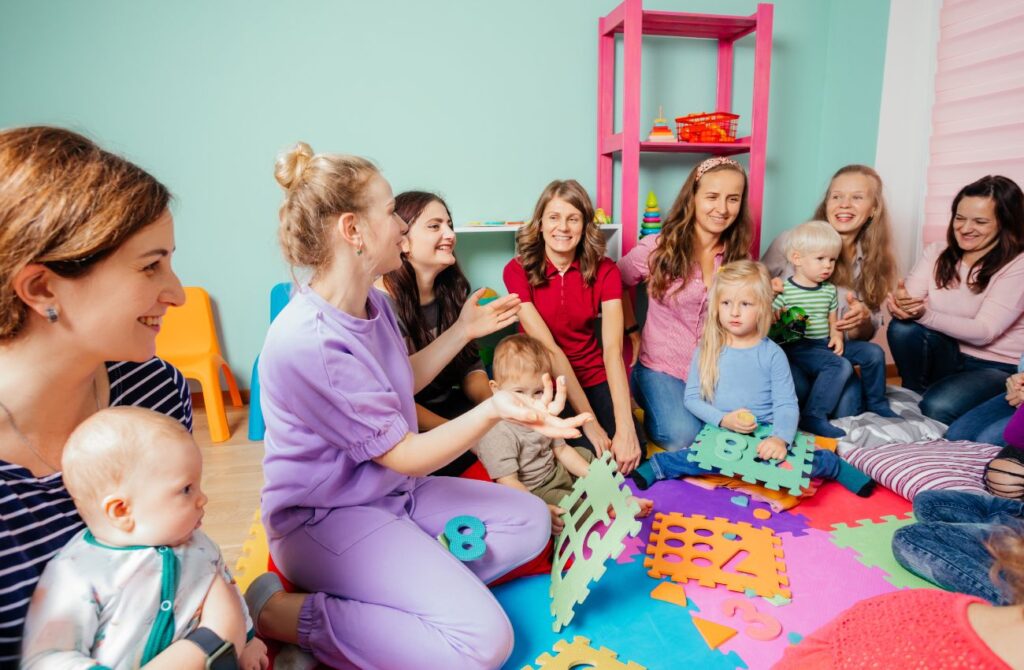
Sometimes AI tools fill gaps that would normally be filled by community wisdom.
If you’re feeling isolated:
- Use AI tools as conversation starters with your pediatrician
- Seek out local parent groups or community centers
- Video call trusted family members for real-time support
- Join a neighborhood WhatsApp or Facebook group. You might find babysitters, set up care swaps, trade toys, or plan stroller meetups
- Use your grocery app’s notes or reminder feature to track baby’s feeding/symptom changes before your next doctor visit
- Record short day-in-the-life videos to share with faraway relatives, and they feel more present when they’ve seen your routine
- Set up a standing video call once a week with a friend or sibling, even if it’s just folding laundry together over FaceTime
- Rotate easy meals. Keep 5–7 fallback dinners on repeat to reduce decision fatigue
- Create a low power mode routine when you’re too drained to do much, know your go-to quiet-time activities and clean-up-free games
Trust your instincts even without external validation.
Special Needs Parenting and Responsible AI Use
Families dealing with developmental delays, autism, or medical conditions often find certain AI tools effective for tracking patterns and communicating with healthcare providers.
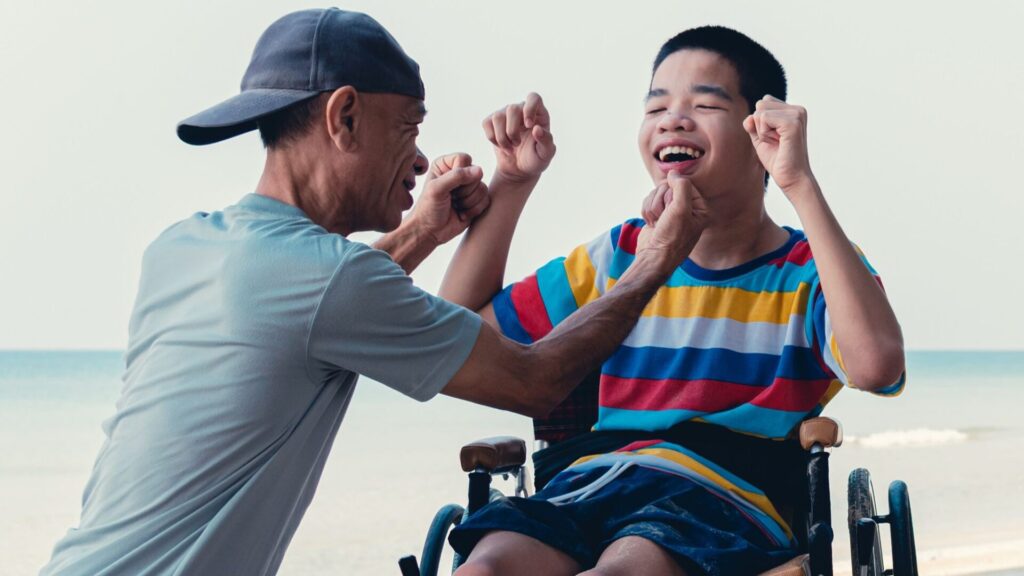
Balanced approach for special needs families:
- Use specialized tracking apps as medical communication tools
- Combine data with your observations of your child’s unique personality
- Keep regular human professional support alongside digital tools
- Trust your knowledge of your child’s individual needs
- Take screenshots of app summaries to bring to therapy or medical appointments, don’t rely on live access during those conversations
- Use speech-to-text journaling when you’re too tired to write but want to log behavior or milestones
- Build a short weekly summary (bullet points, voice note, or spreadsheet) to spot patterns across sleep, behavior, and diet
- If a tool feels overwhelming, scale back to only one or two features that directly help with your biggest challenge
- Use the notes section in your calendar to log therapy goals or progress so you don’t lose track in daily chaos
- Store all key contacts, specialists, emergency info, and care routines in a single note or app for quick access during a tough moment
Why Less Measurement Leads to Better Parenting
Parents who rely less on external validation and obsessive measurement often develop stronger parenting confidence. That confidence pays off over time.
Psychologist Diana Baumrind’s work showed that authoritative parenting, the style most linked to positive outcomes, depends on two things. It requires warmth and boundaries.
You don’t need to micromanage or aim for perfection. Stay steady and respond to your child.
But here’s the part that matters most.
Authoritative parenting only works if you trust your own judgment. Overuse of tracking tools, parenting apps, and constant feedback can quietly erode that trust.
That doesn’t mean you rely on instinct alone. Instincts work best when shaped by experience, reflection, or evidence.
Blind confidence can lead you in the wrong direction, especially under stress.
Trusting yourself isn’t about guessing. It’s about paying attention and knowing your child well enough to respond with clarity.
Parents who believe they can handle things tend to stay steadier, react less, and connect better with their kids.
A 2020 study in the Journal of Family Social Work backs this up. It found that higher parental self-efficacy is linked to more emotional consistency and stronger parent-child bonds.

That trust in yourself, especially early on, predicts not just better child outcomes but stronger relationships in adolescence and beyond.
Children of confident parents, the kind who respond with calm instead of panic, often grow up feeling more secure and valued.
They don’t need their parents to run every question through an app. They just need to be seen, heard, and held.
That said, tools matter in some cases, as I mentioned earlier.
In these situations, measurement supports, not replaces, your judgment.
The takeaway isn’t to ignore tools completely. It’s to use them without handing over your instincts.
How to Use AI Parenting Tools Without Falling Into the Trap
The solution isn’t rejecting all technology, it’s using it strategically while maintaining human primacy in decision-making.
Principle 1: Technology as Background, Not Foreground
Best practice: Use AI tools for passive data collection while keeping active decision-making human-centered.
Example: A feeding app might log meal times and quantities, but decisions about changing your child’s diet should come from noticing their appetite, digestion, and mood in real life.
Principle 2: Pattern Recognition, Not Pattern Prescription
Best practice: Use AI to identify trends in your child’s behavior, but resist allowing algorithms to prescribe responses.
Example: If an app notices your baby cries more in the late afternoon, that’s useful information.
But the solution, earlier nap, different feeding schedule, or more interaction time, should come from understanding your specific child.
Principle 3: Confidence Building, Not Confidence Eroding
Rule of thumb: Any tool that makes you more anxious about parenting is working against your child’s best interests.
Research backup: Confident parents raise more secure children, as I mentioned earlier. If an app increases stress or makes you doubt your instincts, it’s counterproductive regardless of technical accuracy.
Principle 4: Relationship First, Metrics Second
Decision framework: When there’s conflict between what an app recommends and what your child seems to need, trust your child.
Remember: Apps use population averages, not your child’s uniqueness. The goal isn’t optimizing metrics but building a strong, responsive relationship.
What Good Enough Parenting Really Means
Dr. Donald Winnicott said kids don’t need perfect parents. They need parents who show up, respond, and stay emotionally available most of the time.
When you miss the mark now and then, it actually helps. Kids learn that relationships can handle bumps. They learn that other people have their own thoughts and limits.
That’s how they build frustration tolerance and emotional regulation.
Trying to parent with algorithm-level precision strips that away. If every response is fine-tuned by an app, your child never gets to experience small missteps and never learns how to handle them.
Research-Based Guidelines for AI Tool Use
AI Tools You Can Use for Support:
- Identifying patterns you might miss (but verify with your observations)
- Tracking medical information that your pediatrician needs
- Connecting with other parents facing similar challenges
- Learning about general child development stages and variations
AI Tools to Avoid for Emotional and Developmental Decisions:
- Making real-time parenting decisions
- Interpreting your child’s emotional needs
- Determining whether your child is developing normally
- Replacing your observation and instinct
- Providing emotional support or companionship to your child
Critical Safeguards for Parents Using AI:
- Understand what data is being collected and how it’s used
- Verify that you, not your child’s school, are making consent decisions
- Choose tools that prioritize child wellbeing over engagement metrics
- Teach children to question AI-generated content and cross-reference with human sources
The cultural perspective: Across most of human history, parenting hasn’t been about perfection or optimization. It’s been a shared job.
Families and communities raised kids together, guided by instinct, shared knowledge, and a wide view of what normal looks like.
The efficiency consideration: Chasing efficiency can miss the point. The slow, messy, everyday stuff, tantrums, questions, and long cuddles are where trust and growth actually happen.
The Real Solution is Trusting Your Natural Intelligence
The issue isn’t AI technology, it’s our cultural anxiety about parenting itself.
We’ve created a society where parents feel so uncertain about their natural abilities that they’ll delegate intimate decisions about their children to algorithms.
Children benefit most from parents who are present, responsive, and confident, not anxious, measuring, and constantly seeking external validation.
In trying to optimize our children’s development, we may be systematically undermining the relationships research shows are most necessary for their well-being.
FAQs
How many parents use AI for child decisions and is use rising?
Surveys show a sizable and growing share of parents use chatbots for parenting and health questions. Trend estimates come from repeated national surveys and platform metrics.
Does device use or AI reduce parental sensitivity and harm attachment?
Meta-analyses and observational studies link technoference to lower parental responsiveness. Lab interruption studies show immediate drops in interaction quality.
What privacy and bias risks do parenting apps and home AI pose for children?
Audits find parenting apps often collect sensitive child data and models can produce biased outputs. Use tracker scans, data flow audits, and bias tests to quantify these risks?
What rules or safety standards protect children and where are the gaps?
The EU now has an AI law that puts tools for kids in the “high-risk” category. UNICEF also says children need special protection. But most parenting apps and home AI tools still don’t fall under clear rules, so parents often use them without strong safety checks.
Final Takeaways on Balancing AI and Parental Instinct
Real parenting wisdom doesn’t come from accumulating data. It comes from cultivating presence.
You don’t find it in algorithmic precision but in emotional attunement. It develops not through measurement but through relationship.
Your child doesn’t need optimized care routines or data-driven insights, but your confident, attuned, and completely human attention.
In an age of artificial intelligence, trust your natural intelligence as a parent.
Self-reflection questions:
- What uncomfortable truth about your parenting approach might be worth examining?
- Are you parenting your child, or parenting the metrics?
- When did you last make a parenting decision based purely on your instinct?
Remember, your child doesn’t need you to be perfect. They need you to be real, imperfect, present, and trusting in your ability to figure things out together.

